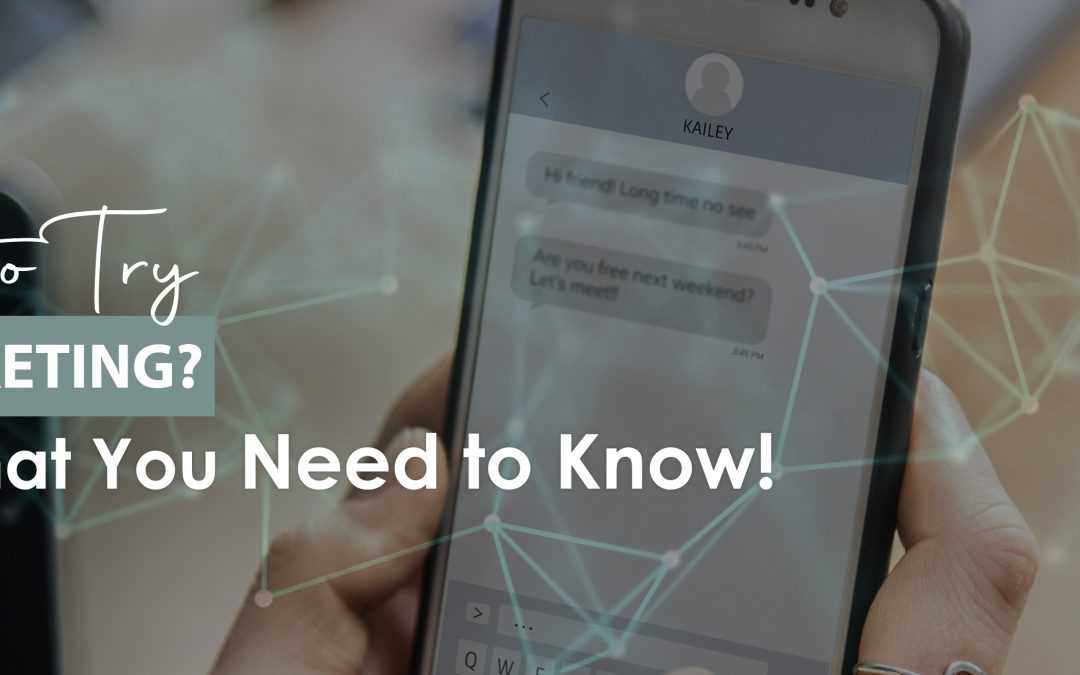SMS marketing is actually a very simple concept that can bring you closer to your company goal.
More and more businesses these days are turning to text-based marketing as part of their overall multi-pronged marketing strategy. Fans of SMS marketing point to the fact that it is the single most direct way to approach customers. Opposition to its use, however, is skeptical of its effectiveness, and in particular, it is the potential to increase ROI. If you want to try SMS marketing it is important to know how it works and why these two schools of thought disagree.
So here’s what you need to know about SMS marketing.
What is SMS marketing?
SMS text messages are sent out to potential customers that offer particular discounts or promote new and improved products or services. SMS marketing was widely used in the 2000s and anyone who remembers those years will recall the sheer volume of promotional texts that would land in their inbox. At that time, SMS marketing was completely uncontrollable but today in America and the West, customers have to opt-in to receive promotional SMS offers. Critics of texting believe that it is still tarred with the stigma of the 2000s; that people are annoyed at receiving unsolicited texts and therefore trying to engage with customers that way is a waste of time and resources. Despite these reservations, there are some clear benefits to SMS marketing, which, if that perceived stigma could be overcome, would make SMS marketing extremely effective.
What is the critics’ objection?
SMS marketing detractors believe that it is near impossible to promote a customer base due to the strict regulations that have been put in place. It is illegal to send anyone promotional text messages without them having opted-in to the service. Critics of SMS marketing believe that so few customers will choose to opt-in that SMS marketing is intrinsically flawed and that a great deal of time and money will be wasted in using it. But those who support text messages believe that these critics need to change their angle of perception. It is their opinion that these regulations add exclusivity to SMS marketing that email could never achieve due to the very fact that it is not regulated. They note that we receive so many promotional emails that we are immediately skeptical about what we are being offered and often will not even bother to open them.
When we receive an offer by SMS however, we will know that it is a genuine deal as it must have been deliberately sent to us. Additionally, companies that use SMS marketing can get immediate feedback on customer engagement through SMS receipts. Some other folks stated that the different receipts (‘sent’, ‘received’, ‘read’) are vital in drawing conclusions about the effectiveness of an SMS marketing campaign. Whilst the opt-in regulations mean that the pool of customers is smaller, the targeted nature of SMS marketing and the marketer’s ability to get a moment by moment engagement data means that the smaller numbers are irrelevant. In short, whilst there are fewer customers, the potential of each customer is much higher.
Why choose SMS Marketing?
One huge benefit of text messages is that by its very nature, it is the single most direct channel from marketer to customer. Throughout the world, SMS is by far the most used way to send and receive messages and SMS marketing has an incredible message open rate of 90% SMS and a response rate of 45%. On average a recipient reads a new message within 90 seconds of its arrival. As SMS inboxes do not filter spam, customers are certain to receive any promotional messages sent by text.
SMS is a universal language that doesn’t require the customer to download or purchase any additional supplementary application or learn any new skill that they didn’t have. Defenders of SMS marketing swear by huge increases in ROI and consider detractors’ objections to be based on a misunderstanding. If they are correct, SMS marketing could be the most important string to any successful campaign’s bow as it is able to drop its message right into the customer’s pocket and alert them immediately to engage.
Key Takeaways
Big takeaways for using SMS marketing for your business :
- Get permission to use SMS with your customers, and keep it by using SMS only when absolutely necessary.
- Use an SMS marketing tool to automate your campaigns and keep your messages relevant.
- Think about the value you add to your customer with your SMS campaigns and get to the point quickly.
- Personalize your SMS campaigns to build and maintain a relationship with your customers.
- Use one SMS per workflow for things like Welcome, Birthday, and cart abandonment workflows.
- Use SMS for time-sensitive offers and the most special deals you’re proposing.
- Offer your customers the power of choosing the channel they get shipping updates on and offer SMS to keep them updated even quicker.
- When you use SMS in a workflow, follow up with an email to give your customers more details that you can’t include in an SMS.
SMS marketing can add immense value to your whole business strategy when done correctly.
As long as you follow best practices, and use SMS when it’s going to make the biggest impact, you can drastically improve your ROI. With these takeaways, you’ll be able to make SMS marketing work for you and your business/store.
SMS marketing clearly has some benefits that no other form of marketing is able to replicate. Whether or not the regulations are really a handicap to its effectiveness is contested strongly by both sides, but the use of SMS marketing has been steadily increasing for some time. Clearly, with the availability of such a direct channel and the incredibly open and response rates, for any business that gets SMS marketing right, there are huge benefits to reap.
www.broadnet.me

